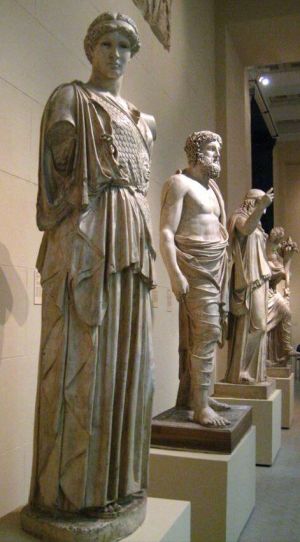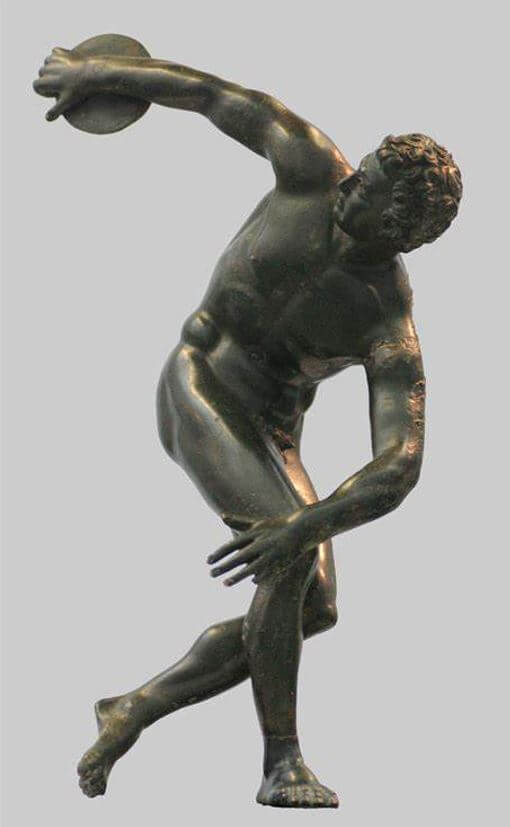EDUCATION 07 – Greek versus Biblical view
The two roots of Western Culture
- Europe (and its extension America, and later colonies) and all its philosophy has two major roots or influences: the Judeo-Christian and the Greek.
- The two are in many points in opposition and conflict with each other.
- Europe has always oscillated between the two, and history has gone accordingly. Currently there is a Greek shift.
Greek world view and philosophy
- The Greek were fascinated with knowledge and loved to passionately discuss questions of knowledge, wisdom and philosophy.
- The Greeks valued logic, rhetorical skill and eloquence.
- Paul encountered this in Athens, talking to the Greeks on the Aeropag (a forum for discussion). “Also some Epicurean and Stoic philosophers debated with him” (Acts 17:18).
- Luke comments “Now all the Athenians and the foreigners living there would spend their time in nothing but telling or hearing something new” (Acts 17:21).
- Paul addresses this world view in 1 Corinthians, where he denounces human wisdom that is more concerned with being smart and looking good in the limelight than with knowing God, doing right, serving others and maintaining unity.
- He bombards the Corinthians with over a hundred thought provoking questions in his letter. He challenges them that for all their spiritual gifts and pride, they do not have what is most important: love.
- He speaks powerfully about Christ as true wisdom: “For Jews demand signs and Greeks desire wisdom, but we proclaim Christ crucified, a stumbling block to Jews and foolishness to Gentiles, but to those who are called, both Jews and Greeks, Christ the power of God and the wisdom of God.” (1 Cor 1:22-24).
Dualism
- The Greek Philosophers had a negative view of the physical world and of the human body. This results in two possible attitudes:
- License … If the material world doesn’t matter, what a person does with the body also doesn’t matter; it will not affect the spirit. Therefore immorality is no problem., for spirit and body are not related.
- Asceticism … If the material world and the physical body is evil, then the spirit needs to be set free to receive greater revelation. The body must be subdued and brought into submission to the spirit by fasting, self-inflicted pain.
- Plato taught that god was the ultimate principle of form and order, and was not personal. Earth is an inferior place. God is far removed from creation. Therefore the earth must have been created by a lesser spiritual being. God would be defiled if he ever came to earth. The material or physical world is merely a shadow of the real spiritual world.
- Aristotle taught that God is so transcendent that He doesn’t even know that the world exists. This leads to a strong dualism – a distinction and separation of the spiritual (real, important, worthy) from the physical (less real, important or worthy)
- The Greeks believed the soul to be immortal. After death is ascends the sky and shines like a star. The New Testament concept of bodily resurrection was not only impossible, it was undesirable. Why would one want a body for all eternity at all?
The concept of 'Knowledge'
Greek view
- Knowledge is honored, pursued, personified, actually deified.
- Head knowledge is important and sufficient. Knowing the facts is all important. Reason and logic is the way to know truly.
- The Greeks thought in dichotomies and in categories; subdividing life into separate parts which have no connection.
- Thomas Aquinas: “Revelation is for Sunday, reason is for Monday”, a separation of sacred and secular. This thinking had a disastrous influence on the early church, the medieval church and is still bearing difficult fruit today in the way the West and the modern church thinks.
Biblical view
- In the Bible to know means to believe = to do = to live it = to experience = to love = to have union with (sex). That’s why the old translations say ‘Adam knew his wife’.
- If you don’t obey a law whole-heartedly, you don’t know it.
- The Jews were integrated thinkers: life is seen as a whole, everything is interrelated.
- No separation of knowing and practicing, no separation of theory and application.
Summary
- Greek: to know = to know about Biblical: to know = to do = to love
The concept of 'Wisdom'
Greek view
- The word wisdom in Greek is ‘sophia’. ‘Philo-sophy’ is ‘the love of wisdom’.
- Great respect and honor for wisdom, learning, education, knowledge, reason, logic, argument, eloquence … but separate from practice
Biblical view
- Wisdom is to know good and evil, and to choose good.
- Wisdom is to lead a good, effective, fruitful, beneficial life. Wisdom is visible in the actions one takes and the life one lives in a community.
- Wisdom is moral, practical, applied, proven in real world
Summary
- Wisdom = knowledge, logic Wisdom = choosing to do good
The concept of 'Rhetoric'
Greek view
- Great importance placed on how one speaks: eloquence, high vocabulary, fluent speech, pleasing language, skilful use of the Greek style, smartness, cleverness, persuasion and convincing argument or logic.
- ‘How I say it?’ Is more important than ‘What am I saying?
- ‘Is it said well?’ Is more important than ‘Is it true?
- Eloquence and form is more important than truth and content.
- Again: Luke describes this in Acts 17:21… “Now all the Athenians and the foreigners there spent their time in nothing except telling or hearing something new”.
- It had to be new and different, tickling intellect, engaging the mind, coming across attractively and smartly.
Biblical view
- Priority is places on truth. Not ‘how is it said?’ but ‘is it true?’
- Truth and content is more important than eloquence and form.
- But this does not mean that excellent styles of communication are not used in the Bible. Esther, Ruth and Joseph’s story in Genesis are masterfully told. Job is very carefully arranged drama, almost in stage play form. The psalms are powerful poems. Nahum is considered a poetic masterpiece. Generally the prophets use incredibly rich and varied vocabulary, metaphors and styles of communication to reach the hearts of their hearers.
The concept of 'Beauty'
Greek view
- Beauty is primarily an outward quality: beauty of face, evenness of features, posture and body.
- Beauty lies in appearance, in presentation, in skill, in performance.
- Beauty is almost standardized, a measure one lives up to – or not.
- Beauty mostly deteriorates.
- Greeks believes that in a deformed body there must necessarily be an evil soul.
Biblical view



- Beauty is primarily an inward quality: beauty of character, of attitude, of behavior.
- Beauty lies in character, in the way a person behaves, in their humility, wisdom, kindness, graciousness.
- Beauty is varied, there is no ‘one ideal’.
- Though appearances may be better or less liked, in the Biblical concept the beauty of character works its way out into the face eventually.
- In the end kind faces are beautiful faces.
- Beauty can increase over time.
- Jesus is the ideal but not one physical description of him is given in the gospels.
A juxtaposition of where importance is placed
| Greek View | Biblical view |
|---|---|
| Appearance | Essence, Reality |
| Status, Position | Worthiness, Goodness |
| Form | Substance |
| Beauty | Character |
| Intelligence | Willingness |
| Skill | Virtue |
| Ability | Attitude |
| Talent | Use of talent |
| Accomplishment | Faithfulness |
| Giftings | Behavior |
| Eloquence | Content, Truth |
| How well was it said? | Is it true? |
| Argumentation | Desire for truth |
| Logic | Revelation |
| Theory | Application, Practice |
| To know = to know about | To know = to do, to love |
| Knowledge | Wisdom |
| Smartness | Commitment |
| Intelligence | Willing mind |
| Statutes, paintings | Poetry |
| Eye | Ear |
| Picture | Word |
| Excitement | Joy |
| Applause | Approval |
| Reputation | Reality, Integrity |
| Image | Character |
| Presentation | Consistency, Reality |
| Outward | Inward |
| Visible | Invisible |
| Now | Always |
| Temporal | Eternal |
| Dichotomy | Integration |
The Greek-influenced Corinthian Church's objections to Paul
Many Corinthians had hesitations about Paul and challenged his apostolic authority:
- Many in the church did not consider Paul was truly ‘spiritual’.
- He was not a good speaker (1 Cor 2:4, 2 Cor 10:10), meaning probably that he did not use Greek rhetoric, or not as well as others
- He did not speak with real wisdom
- He did not accept money like successful Greek teachers would (1 Cor 9)
- He worked with his hands, he suffered, both only done by ‘losers’
- Other speakers were thought to be more ‘spiritual’, especially the eloquent Apollos (Acts 18:24-28, 1 Cor 3:4-9).
- Groups or factions formed had formed, each with their own favorite teacher (1 Cor 1:12).
- There were increasing strains in the relationship between Paul and the church as described in 1 Corinthians.
- After a fateful and ‘painful’ visit (2 Cor 2:1) Paul writes the letter of 2 Corinthians as a further step in mending things.
- They had a love for wisdom and eloquent words, but a disregard for the importance of a humble and godly lifestyle.
- This thinking set the church up for trouble: division, superficiality, impressed-ness with the wrong things, pride and immorality.
- So the fundamental issue in Corinth was the question: What does it mean to be wise? What does it mean to be truly spiritual ?
Application
- Today there is clear shift towards the Greek view.
- Unless we know what the Biblical view is, we will not be able to escape, address or resist the Greek shift in our culture.